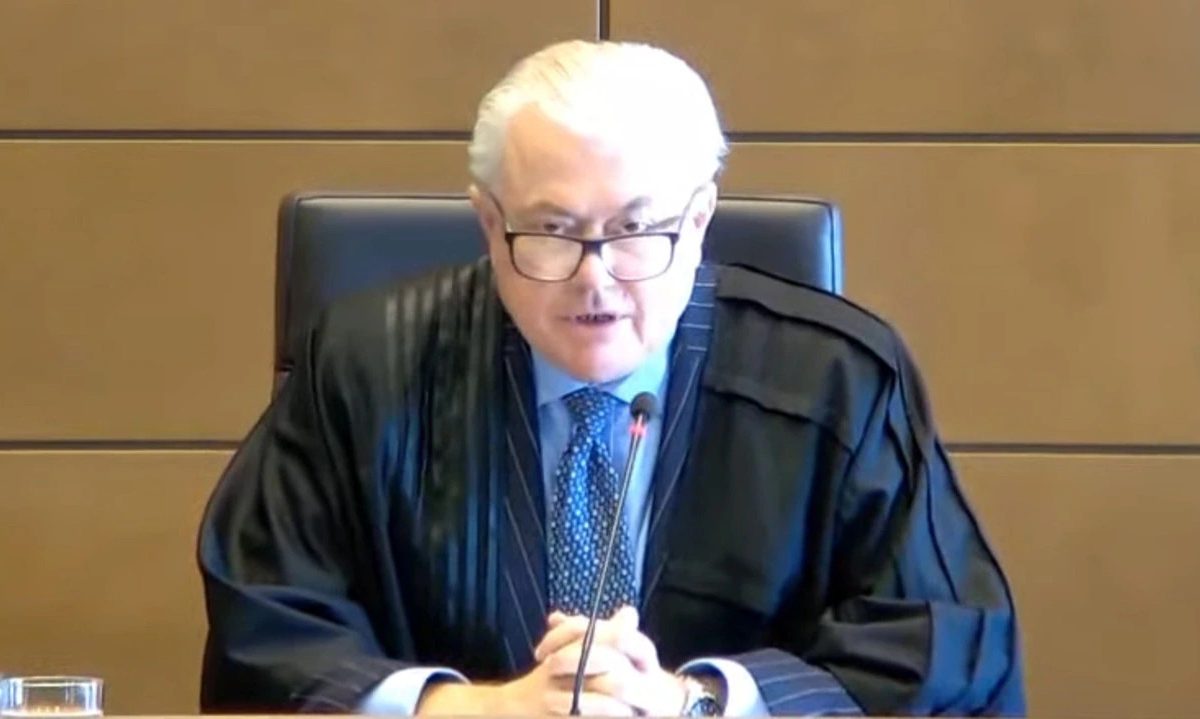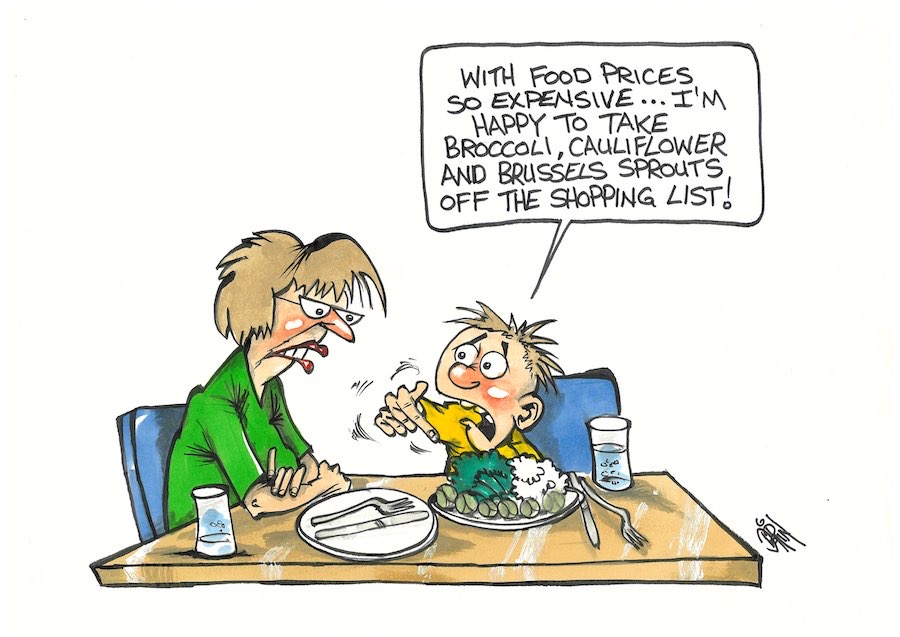“It could easily be argued that Stage 2 will increase car use, because light rail will be slower and less convenient than even the current bus system and will free up more road space for other vehicles,” says letter writer RICHARD JOHNSTON, of Kingston.

LEON Arundell’s letter (CN October 28) questions whether light rail will assist significantly in reducing the ACT’s transport emissions.
He would be interested in some information I found in the “Business Case for Light Rail Stage 2A”:
Figure 3-2: Car kilometres travelled with and without city to Woden Light Rail in 2046
Without Light Rail – approx. 18,660,000″
With Light Rail – approx. 18,520,000″
That’s less than a one per cent reduction!
Even this miniscule, suggested reduction in car usage may be based on similar heroic assumptions to those underlying other “benefits” attributed to Light Rail Stage 2, which have been criticised by the ACT auditor-general.
It could easily be argued that Stage 2 will increase car use, because light rail will be slower and less convenient than even the current bus system and will free up more road space for other vehicles.
Not to mention, of course, the huge emissions that will be generated by the construction of a rail-based system, including a deep concrete foundation, many new bridges, etcetera.
Richard Johnston, Kingston
Future generations will have to pay
ACCORDING to the AMA, the ACT health system is the worst in the country, for all performance measures. It is also reported that the ACT debt-to-revenue ratio is expected to rise exponentially from 69 per cent in 2021 to 138 per cent by 2025, with no indication of slowing down.
To boot, net debt by the ACT is heading to $9.5 billion, more than $22,000 for every man, woman and child.
Now, as investors know, debt is not a bad thing as long as there will be a positive return. However, much of the ACT’s debt is ideology driven, like the outrageously uneconomic light rail, with no hope of a reasonable return (or ever compensating for the original GHG emissions bill, for that matter).
The net result is that future generations will, sooner or later, have to pay the consequences of this government’s profligate debt.
Oh, I forgot, our omni-prescient Treasurer, Mr Barr, says that: “We are all Keynesian now”, ie debt is no longer a dirty word.
I often wonder, except for the billions to be chewed up by light rail, where all the money is going, given a dud health system and poor infrastructure maintenance among other things.
Why does the government need a pay rise of some 7 per cent a year, when citizens have been on less than 2 per cent increase in wages for years and for some years to come yet? Taxpayers are obviously going backwards.
I certainly hope the long-suffering ACT taxpayers have news for Rattenbury and Barr at the next election.
Max Flint, co-ordinator, Smart Canberra Transport
We’re stuffed… and stuffed even more!
WITH reference to in-the-thick-of-it letters to the editor (CN on and before October 21), I still find reason to be on the trail of Light Rail as it proceeds from Civic to Woden. Also of note is the front-cover reference to how Chief Minister Andrew Barr will have to borrow to foot the Budget (CN October 28).
I agree with Peter Sherman, of Aranda (Letters, CN October 21), who praises electric buses for their versatility and affordability, their operating in a given infrastructure without causing environmental damage and the disruption to traffic, with the huge amount of funds for cement (a climate-change factor), rails and overhead electrification, benefitting only a comparatively small number of people and only serving the commuters living in walking distance of a station.
Mr Sherman also points out it will be very inconvenient to some passengers who go further afield, and who could get to their destination faster by bus.
Housing “affordability” is an outrageous issue! It is clearly linked to the poor track record of the Labor/Greens government and the Budget brought down in October is such that not even higher taxes and rates can foot the bill for light rail. It should never have been given the green light. This city is stuffed.
And it’s stuffed even more with the news that the light rail models in Sydney that have some “cracks” in them are the same as the ones about to blight every passenger’s day for the next few years here.
As for me, yes, I will experience inconvenience and greater expense caused by light rail to Woden (catching taxis) as will other disadvantaged people, such as those with children and babies in strollers, people with disabilities and the elderly.
The prospect of having to walk from Callum Street (read new Woden bus station) to the supermarkets in Woden Westfield, is not an easy one for many elderly pedestrians. Some, they, we, don’t have the stamina or endurance.
Jenny Holmes, Weston
Why does he live in Queanbeyan?
PHILLIP Mackenzie’s tongue-in-cheek nostalgia for the Bush Capital (Letters, November 4) went too far back, but if he scorns even the recent past and favours a “progressive” Canberra, why does he live in Queanbeyan? Too expensive here, perhaps?
Greg Cornwell, Yarralumla
Greens contradict themselves
CONGRATULATIONS, Ian Meikle (“Government’s been a gas for the green Greenies”, CN October 28).
A very good article and I agree with him entirely. The Greens want to reduce emissions yet contradict themselves all the time. The trams and tracks are steel, which require coal to manufacture.
They want solar panels and wind turbines everywhere. It takes 200 tonnes of coal to make one wind turbine. It takes coal to manufacture the solar panels and we are not told about all the chemicals used in the making of solar panels.
The solar panels, wind turbines and batteries are not being recycled in any meaningful way so have to be buried. Given they only last from 10-20 years, what do we do when we run out of space to bury them? There is also a problem with the chemicals in the solar panels and batteries, they will leach into the water table when buried.
The plan is to cut down all the 100-year-old trees on Commonwealth Avenue if the light rail goes that way. The green spaces with trees keep getting taken over to build yet more blocks of units, yet we are now being told we must build smaller houses and plant trees on our blocks – which is happening at exactly the time that existing green space is being covered with concrete and bitumen.
Vi Evans, Macgregor
Racism charge a bit of a stretch
THE Netflix hit “Squid Game” pressed columnist Robert Macklin’s buttons hard! (“How about execrable, vile, putrid and racist?”, CN November 4)
Fair enough, we vary in tolerance for both the role and style of dramatic violence. But his charge of anti-Korean racism is a bit of a stretch. “Squid Game” is written and directed by Korean Hwang Dong-Hyuk; produced in South Korea; spectacularly successful in its homeland, alongside 90+ other countries.
The only non-Korean characters are a handful of grotesque puppet-masters dripping with irredeemable traits in the final episodes.
Peter Robinson, Ainslie
More than I could bear to read
ROBERT Macklin’s column (“How about execrable, vile, putrid and racist?”CN November 3), in relation to the Netflix hit show “Squid Game”, was more than I could bear to read.
I say to Robert with all respect, that people of younger generations than his have different views.
I, for one, can’t wait for a second season of “Squiddy” to be released – it’s really good “popcorn” entertainment.
To bring in a racist and Jewish angle into the article is a manifestation of his thinking and what’s with the reference to defeating the Morrison government being aligned with “great causes” like saving humanity and world peace – oh, please, get me a barf bag!
People know the difference between fantasy and reality. Watch the show for what it is “a bloody and gory good watch”. But, of course, I am the first to say it’s not suitable for children.
My advice, Robert, is if you don’t like something on TV simply don’t watch it – just change the channel.
Bjorn Moore, Gowrie
Crowd-funding a covid breakthrough
WITH the unsolved problems of vaccine hesitancy and the push to mandate vaccines in Australia, and to some extent in the ACT, readers may be interested to know of an Australian vaccine for COVID-19, namely COVAX-19 developed by Prof of Medicine Nikolai Petrovsky at Flinders University in SA.
It is a very safe and effective traditional protein-based vaccine that has recently received marketing authorisation by the FDA in Iran. This is based on outstanding results showing protection against the delta variant in a Phase 3 clinical trial in 16,876 subjects in Iran, easily surpassing the WHO and FDA criteria for COVID-19 vaccine approval.
Importantly, in these large clinical trials, no vaccine-related deaths or cases of venous thrombosis or myocarditis were observed, problems seen with the currently used adenovirus and mRNA vaccines.
A further significant advantage is that it appears to be able to stop transmission, unlike the currently used vaccines.
At the time of writing a GoFundMe campaign to assist with a TGA evaluation for use of this vaccine in Australia had reached $337,409. A good few Australians are clearly only too keen to support this vaccine for Australian use.
Murray May, Cook
What does the future hold?
GLIDING through the ’70s suburbs at dusk, the sky dark with clouds, the tall roadside grasses sway in a breeze, open spaces realise their intentions, greenness abounds and gardens burgeon.
The infrastructure is all in place and working – even the potholes, brimming with rainwater, grin back, but the speed humps don’t bother, and they don’t bother me. What does the future hold?
Jack Kershaw, Kambah
Climate models are incomprehensible
GLOBAL warming is an election issue, but the politics will dominate. I suspect that it is just the activists who are committed, while the wider population has other priorities.
With an unusually wet year and bumper harvests of every type, the bushfires of 2019-20 are history.
The Intergovernmental Panel on Climate Change is relying on trust for people to heed the gravity of its message because the climate models are incomprehensible to the man in the street. I think they should do more to communicate what they think is happening.
Will the earth keep warming if CO2 levels rise further or will there be compensating effects? Won’t the slowing of the gulf stream produce a cooling effect?
Such questions are far from the mind of the general population. More the pity, because if they weren’t it would provide an opportunity for scientists to establish their convictions amongst a population that is mostly concerned with getting on with life after covid and whose knowledge of climate change goes no further than rooftop solar.
John L Smith, Farrer
Who can be trusted?
In a world of spin and confusion, there’s never been a more important time to support independent journalism in Canberra.
If you trust our work online and want to enforce the power of independent voices, I invite you to make a small contribution.
Every dollar of support is invested back into our journalism to help keep citynews.com.au strong and free.
Thank you,
Ian Meikle, editor





Leave a Reply